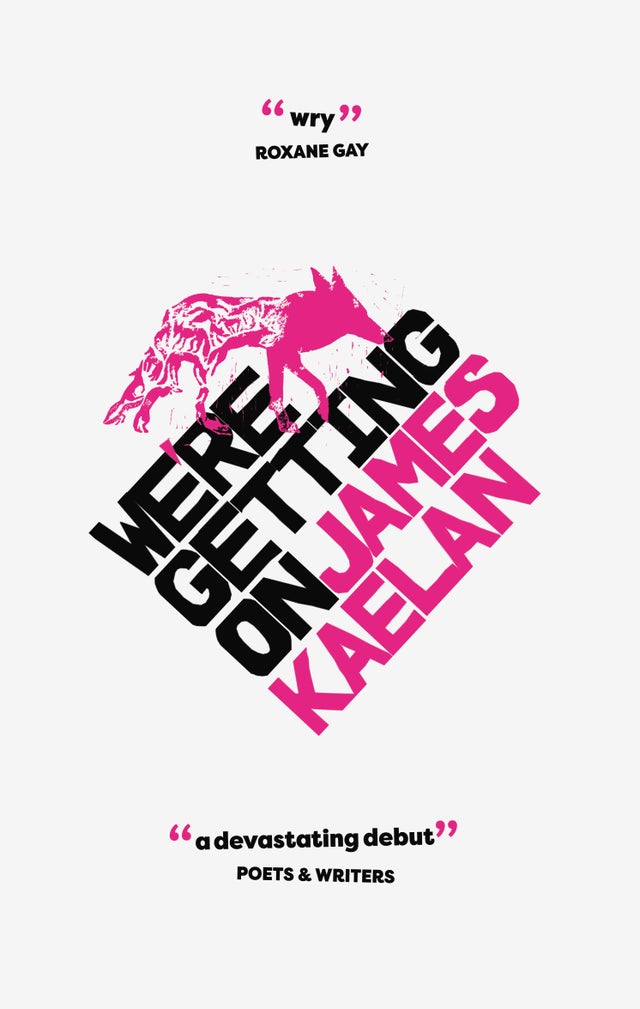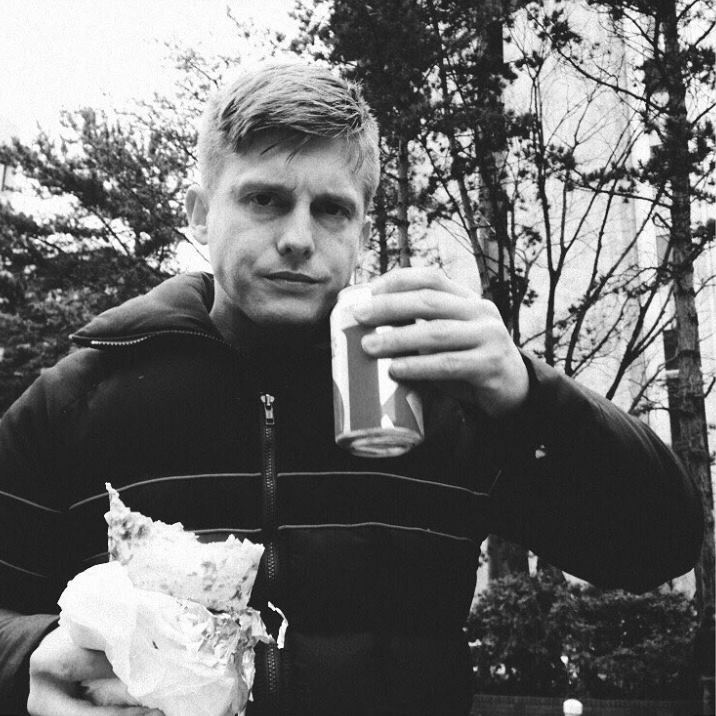We're Getting On
SKU:
$15.00
$15.00
Unavailable
per item
by James Kaelan
101 pages | 5x8 Paperback
“A devastating debut”
— Kevin Larimer, Poets & Writers
At a bar in Sacramento, a group of disaffected kids watch Saddam Hussein's trial on T.V. every night and compete with each other over who loves the tyrannical Middle East strongman most. So when Dan, the charismatic-and-perhaps-despotic frontman of a popular local band compels four acolytes to follow him into the desert "to get to the bottom of this whole human condition," they're powerless to resist.
Originally published in 2010, We're Getting On reads now like a harbinger of America's accelerating economic stratification, political extremism, and environmental degradation.
101 pages | 5x8 Paperback
“A devastating debut”
— Kevin Larimer, Poets & Writers
At a bar in Sacramento, a group of disaffected kids watch Saddam Hussein's trial on T.V. every night and compete with each other over who loves the tyrannical Middle East strongman most. So when Dan, the charismatic-and-perhaps-despotic frontman of a popular local band compels four acolytes to follow him into the desert "to get to the bottom of this whole human condition," they're powerless to resist.
Originally published in 2010, We're Getting On reads now like a harbinger of America's accelerating economic stratification, political extremism, and environmental degradation.
“Wry”
— Roxane Gay, HTMLGIANT
“The vision is undaunted and as clear as skies must have been before the industrial age.”
— Evan Karp, The Rumpus
“Stark and harrowing”
— Chloe Benjamin, author of The Immortalists
“Deliciously uncomfortable”
— Emily Temple, Flavorwire
— Roxane Gay, HTMLGIANT
“The vision is undaunted and as clear as skies must have been before the industrial age.”
— Evan Karp, The Rumpus
“Stark and harrowing”
— Chloe Benjamin, author of The Immortalists
“Deliciously uncomfortable”
— Emily Temple, Flavorwire
It's fall, 2005. The Great Recession won't strike for another three years. Trump won't declare his candidacy for another decade. But something is deeply wrong in America.
At a bar in Sacramento, a group of disaffected kids watch Saddam Hussein's trial on TV every night and compete with each other over who loves the tyrannical Middle East strongman most. These under-employed, student-loan-laden children seem to have no interest in—or even capacity to—participate in America’s market capitalism. They studied art, or history, or art history in school, and were shocked to discover that the only jobs that didn’t make them feel ill were bagging groceries at the food co-op and deejaying for drink tickets at a dive bar. There was no Bernie Sanders or Alexandria Ocasio-Cortez or Andrew Yang or Michael Tubbs to idolize. Politics was pointless. Activism was a lost cause. Grow a mustache in homage to Saddam, drink seven nights a week, and hope you don’t catch any incurable diseases.
But their ironic fascination with autocracy also suggests a latent desire for some authority figure, someone to get direction from, someone to love. And so when Dan, the charismatic-and-perhaps-despotic frontman of a popular local band compels four acolytes to follow him into the desert "to get to the bottom of this whole human condition," they're powerless to resist.
Originally published in 2010, We're Getting On reads now like a harbinger of America's accelerating economic stratification, political extremism, and environmental degradation. You don't pick up this book to feel better about the present we're destroying. But squinting through the dark glass of its final, haunting pages, we can glimpse the contours of the sustainable planet we might yet survive to repair.
At a bar in Sacramento, a group of disaffected kids watch Saddam Hussein's trial on TV every night and compete with each other over who loves the tyrannical Middle East strongman most. These under-employed, student-loan-laden children seem to have no interest in—or even capacity to—participate in America’s market capitalism. They studied art, or history, or art history in school, and were shocked to discover that the only jobs that didn’t make them feel ill were bagging groceries at the food co-op and deejaying for drink tickets at a dive bar. There was no Bernie Sanders or Alexandria Ocasio-Cortez or Andrew Yang or Michael Tubbs to idolize. Politics was pointless. Activism was a lost cause. Grow a mustache in homage to Saddam, drink seven nights a week, and hope you don’t catch any incurable diseases.
But their ironic fascination with autocracy also suggests a latent desire for some authority figure, someone to get direction from, someone to love. And so when Dan, the charismatic-and-perhaps-despotic frontman of a popular local band compels four acolytes to follow him into the desert "to get to the bottom of this whole human condition," they're powerless to resist.
Originally published in 2010, We're Getting On reads now like a harbinger of America's accelerating economic stratification, political extremism, and environmental degradation. You don't pick up this book to feel better about the present we're destroying. But squinting through the dark glass of its final, haunting pages, we can glimpse the contours of the sustainable planet we might yet survive to repair.
About the author
|
James Kaelan is a novelist, filmmaker, podcaster, and journalist. His first book, We're Getting On, was featured on the cover of Poets & Writers 2010 debut fiction issue. His films, performances, and VR experiences have shown at Sundance, Slamdance, Tribeca, Cannes, and AFI FEST, amongst others, and have been profiled in publications from VICE to The New Yorker. Kaelan holds an MFA in fiction from Boston University, and is currently an interdisciplinary MFA fellow at UC Davis—where he's working on a new novel/utopian community experiment. What could go wrong?! |


